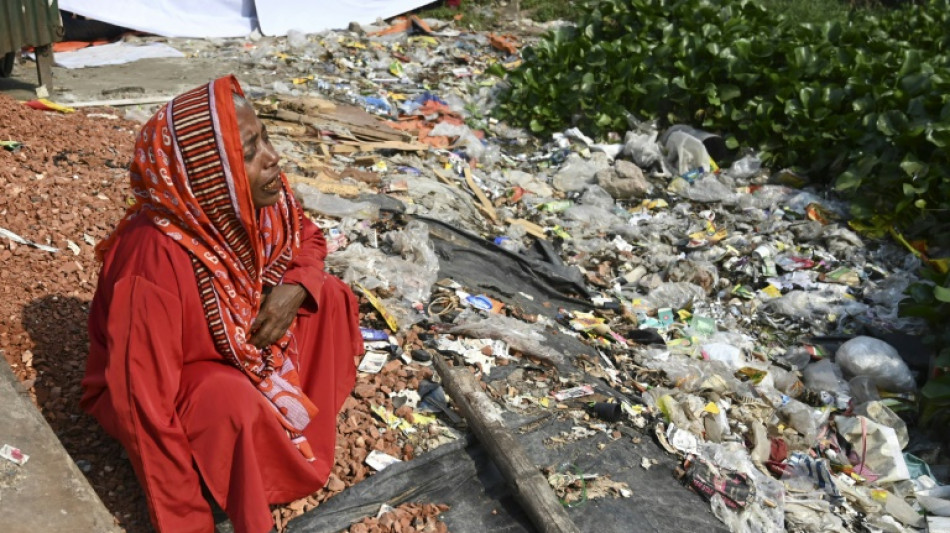
-
 Tottenham 'not a big club' says Postecoglou after Frank sacking
Tottenham 'not a big club' says Postecoglou after Frank sacking
-
Belgian police raid EU commission in real estate probe
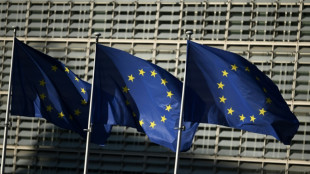
-
 Zelensky blasts Olympics ban for Ukrainian athlete over memorial helmet
Zelensky blasts Olympics ban for Ukrainian athlete over memorial helmet
-
Pro-Kremlin accounts using Epstein files to push conspiracy: research

-
 Odermatt sets sights on Olympic giant slalom -- and gold
Odermatt sets sights on Olympic giant slalom -- and gold
-
Cinema's power to 'change the world' in focus at Berlin Film Fest

-
 France pick uncapped Brau-Boirie in new centre pairing for Wales
France pick uncapped Brau-Boirie in new centre pairing for Wales
-
Man Utd's Ratcliffe's apologises for 'language' on immigration

-
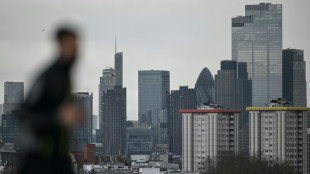 UK economy struggles for growth in fresh blow to government
UK economy struggles for growth in fresh blow to government
-
EU vows swift reforms to confront challenge from China, US

-
 UK nursery worker faces jail for serial child sex abuse
UK nursery worker faces jail for serial child sex abuse
-
Anti-racism body slams Man Utd co-owner for 'disgraceful' immigration comments

-
 Mercedes-Benz net profit nearly halves amid China, US woes
Mercedes-Benz net profit nearly halves amid China, US woes
-
Comeback queen Brignone wins super-G at Winter Olympics

-
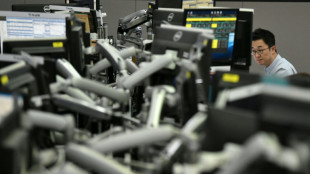 European stocks rise tracking earnings, US jobs
European stocks rise tracking earnings, US jobs
-
Hermes sales rise despite US tariffs, currency headwinds
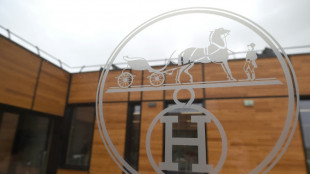
-
 Russia confirms ban on WhatsApp, says it failed to abide by law
Russia confirms ban on WhatsApp, says it failed to abide by law
-
Ukraine skeleton racer Heraskevych banned from Olympics over memorial helmet

-
 Pro-Kremlin accounts using Epstein files to push conspiracy: AFP research
Pro-Kremlin accounts using Epstein files to push conspiracy: AFP research
-
France picked uncapped Brau-Boirie at centre to face Wales

-
 Thomas Tuchel extends contract as England coach until Euro 2028
Thomas Tuchel extends contract as England coach until Euro 2028
-
England coach Tuchel set to sign new deal until 2028 - report

-
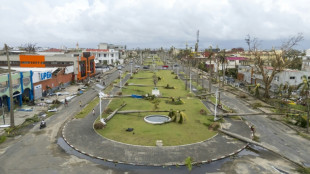 Death toll in Madagascar cyclone rises to 35
Death toll in Madagascar cyclone rises to 35
-
Shanaka fireworks as Sri Lanka thrash Oman at T20 World Cup

-
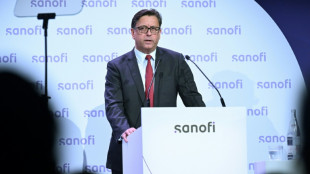 Sanofi says board has removed CEO Paul Hudson
Sanofi says board has removed CEO Paul Hudson
-
Struggling Nissan forecasts $4.2 bn full-year net loss

-
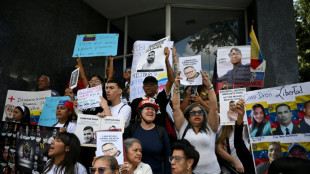 Venezuela to debate historic amnesty bill for political prisoners
Venezuela to debate historic amnesty bill for political prisoners
-
Ukraine skeleton racer Heraskevych disqualified from Olympics over memorial helmet

-
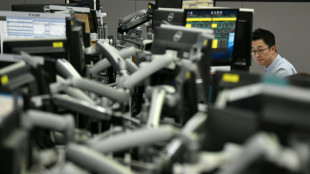 Markets mostly rise as stong US jobs data ease economy worries
Markets mostly rise as stong US jobs data ease economy worries
-
France jails three in gang rape case after mother saves evidence

-
 From 'Derry Girls' to 'heaven', Irish writer airs new comedy
From 'Derry Girls' to 'heaven', Irish writer airs new comedy
-
Asia markets mixed as stong US jobs data temper rate expectations
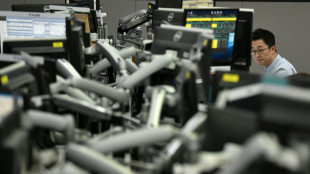
-
 Shanaka fireworks as Sri Lanka pile up 225-5 against Oman
Shanaka fireworks as Sri Lanka pile up 225-5 against Oman
-
Samsung starts mass production of next-gen AI memory chip

-
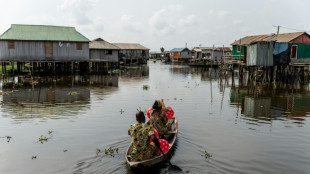 Benin's lovers less row-mantic as apps replace waterway rendezvous
Benin's lovers less row-mantic as apps replace waterway rendezvous
-
Geneva opera house selling off thousands of extravagant costumes

-
 Non-alcoholic wine: a booming business searching for quality
Non-alcoholic wine: a booming business searching for quality
-
Greece's Cycladic islands swept up in concrete fever

-
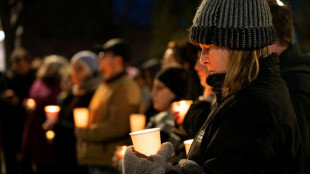 Grieving Canada town holds vigil for school shooting victims
Grieving Canada town holds vigil for school shooting victims
-
Israel president says at end of visit antisemitism in Australia 'frightening'

-
 Cunningham on target as depleted Pistons down Raptors
Cunningham on target as depleted Pistons down Raptors
-
Canada probes mass shooter's past interactions with police, health system

-
 Dutch speed skater Jutta Leerdam combines Olympic gold and influencer attitude
Dutch speed skater Jutta Leerdam combines Olympic gold and influencer attitude
-
Scotland coach Townsend under pressure as England await

-
 Canadian ice dancers put 'dark times' behind with Olympic medal
Canadian ice dancers put 'dark times' behind with Olympic medal
-
'Exhausting' off-field issues hang over Wales before France clash

-
 Crusaders target another title as Super Rugby aims to speed up
Crusaders target another title as Super Rugby aims to speed up
-
Chinese Olympic snowboarder avoids serious injury after nasty crash

-
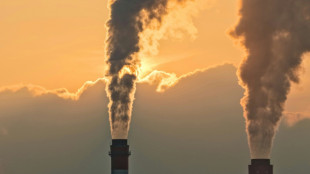 China carbon emissions 'flat or falling' in 2025: analysis
China carbon emissions 'flat or falling' in 2025: analysis
-
'China shock': Germany struggles as key market turns business rival
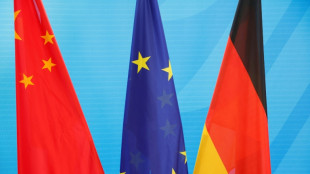

Sweat shops: textile industry's dark side
The deadly consequences of fast fashion were spotlighted a decade ago after 1,138 people were killed when the nine-storey Rana Plaza garment factory collapsed in Bangladesh.
While the tragedy piled pressure on top brands churning out ever-rising mountains of clothes to ensure better standards, abuses in the textile industry continue:
- Factory hellholes -
The collapse of Rana Plaza near the capital Dhaka was the worst in a series of disasters in textile factories in Bangladesh, the world's second-largest garment exporter after China, and other Asian countries.
A year earlier, at least 111 workers were killed in a fire at a textile factory in Dhaka that produced for US retail giant Walmart, among others, and more than 250 workers died in a blaze in a factory in the Pakistani city of Karachi that produced jeans for German discount chain KiK.
The scale of the disaster at Rana Plaza, which produced clothes for Primark and Benetton, among others, proved a turning point.
Under intense scrutiny, top brands, retailers and trade unions agreed to work together to improve safety conditions in Bangladeshi factories.
About 1,820 factories -- accounting for more than 80 percent of exports -- have been inspected since. Most have been declared fully or almost fully safe.
While Bangladesh has had no major textile factory disasters since 2013, such tragedies have continued to occur elsewhere.
Several people have died in fires at illegal garment factories in the Indian capital New Delhi and in Morocco, 28 people died when heavy rain flooded an illegal basement factory in the port city of Tangiers in 2021.
- Forced labour allegations -
China is accused of having interned more than a million Uyghurs, a Muslim minority living in the northwestern Xinjiang region, in political re-education camps and exploiting some of them for forced labour in cotton fields.
Beijing has dismissed the charges, saying it is operating vocational training centres to counter religious extremism.
Global brands including Adidas, Gap, Nike and Puma were drawn into the controversy after it emerged they were using cotton from Xinjiang, which produces a fifth of the world's supply.
In 2021, French magistrates opened an inquiry into claims that four fashion groups, including Uniqlo and the owner of Zara, were complicit in crimes against humanity by profiting from forced labour in Xinjiang.
- Rock-bottom wages -
The meagre salaries of textile workers in the Indian subcontinent are often flagged, but being paid a pittance to deliver fast fashion is an issue in Europe and the United States, too.
In Britain in 2020 for example, investigations by the NGO Labour Behind the Label and several media outlets found textile workers in the central English town of Leicester were sometimes earning as little as two British pounds ($2.63) an hour.
Low wages have sparked protests around the world, notably in Asia.
After years of violent, deadly demonstrations in Cambodia, garment workers finally secured a minimum monthly wage that is higher than most other countries in the region. In 2023, it was set at $200.
- Toxic dumping grounds -
In the era of fast fashion, the average person buys 60 percent more clothing than 15 years ago, while each item is kept for only half as long, according to the UN in 2022.
A throw-away culture generates growing mountains of waste, much of which ends up in mega dumps in the southern hemisphere.
"Every second, the equivalent of one garbage truck of textiles is dumped in a landfill or burned", said the UN.
The Dandora landfill in Nairobi, for example, receives 4,000 tons of rubbish per day, according to Changing Markets Foundation.
- Top polluter -
The textile industry is also a major polluter, causing between two and eight percent of global carbon emissions, according to the UN in 2022.
It is responsible for 25 percent of the pollution of the world's waters and a third of microplastic discharges into the oceans -- a toxic substance for fish as well as humans.
R.Halabi--SF-PST

